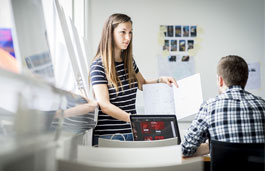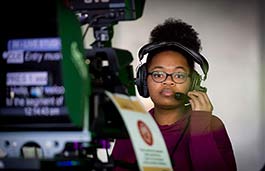Search
Media Production BA (Hons)
Study level: Undergraduate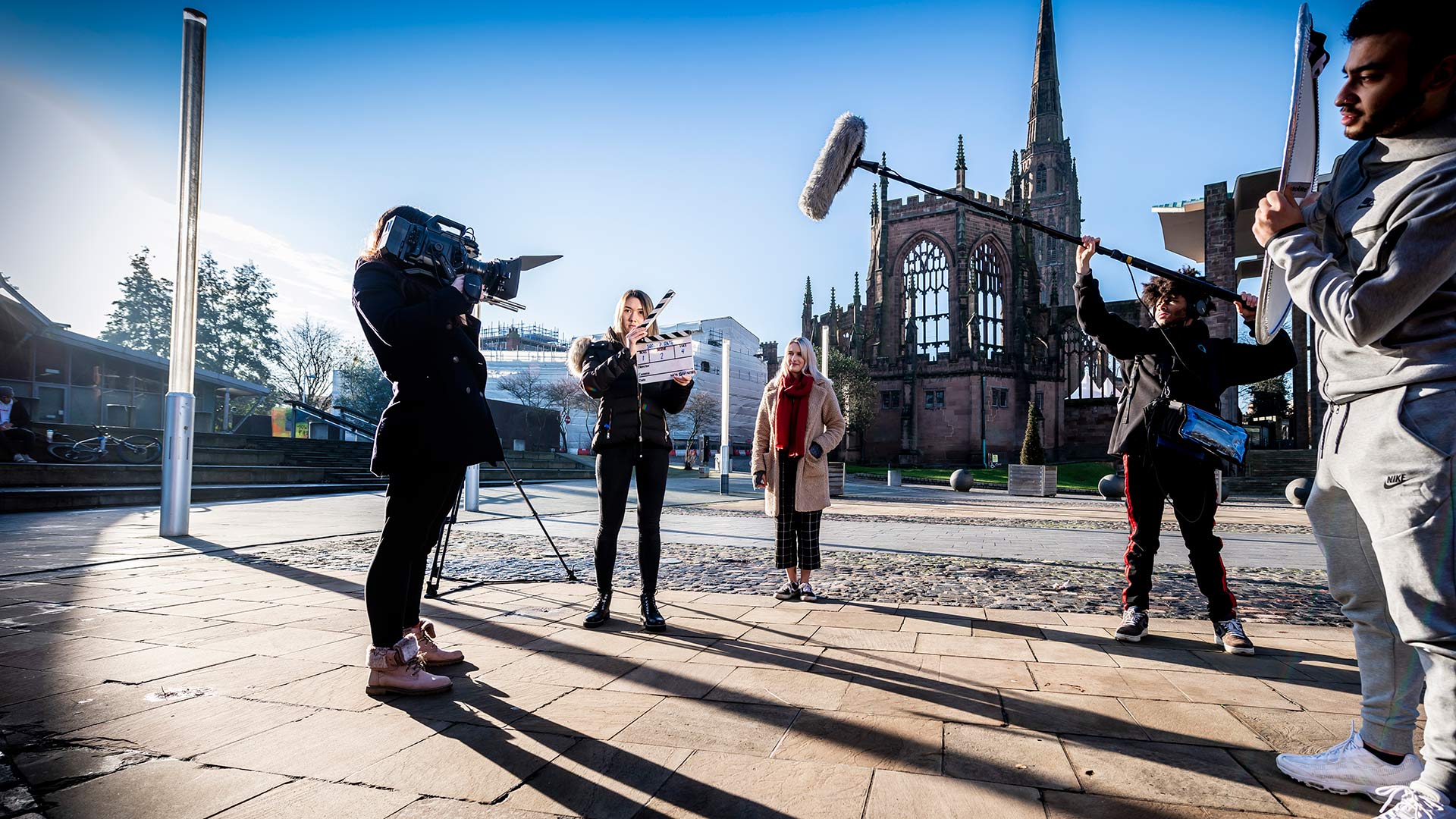
This exciting course aims to keep you up to date with the latest media industry developments and encourages you to develop skills to produce work for distribution across multiple platforms and genres.
Year of entry
Location
Coventry University (Coventry)
Study mode
Full-time
Sandwich
Duration
3 years full-time
4 years sandwich
Course code
P310
Start date
September 2024
Course overview
From the outset, this course aims to develop your technical, creative, reflective and analytical abilities, in order to give you a thorough grounding in current and emerging media production technologies, ways of working and contemporary professional practice, as well as the opportunity to gain project management and professional skills needed in this ever-expanding industry.
- Media Production is about developing real world skills in many different types of production from making: films, live broadcast TV, radio, podcasts, 360 video, immersive experiences, photography, websites, and social media content.
- Our current links with local, regional, national media industries, including companies like The Walt Disney Company, ITV and Aardman Animations, provide numerous opportunities for location work, site visits and talks by visiting media professionals, together with live projects and a professional experience scheme (subject to availability)2. In short, you’ll be taught to tell interesting stories and distribute those stories to the largest possible audience.
- You will have opportunities for professional experience and live projects, which have, in the past, included student-industry collaboration with Regional BBC, Creative City, Rolls-Royce and BBC3 (subject to availability, application and additional costs)2.
Rated Gold Overall
Teaching Excellence Framework (TEF) 20235 QS Stars for Teaching and Facilities
QS Stars University RatingsTop 5 Student City in England (Coventry)
QS Best Student Cities Index 2025Why you should study this course
- Opportunity to access high standard professional media equipment via our Media Loan Shop, including media equipment, such as Blackmagic and Sony cameras (subject to availability)
- Opportunity to meet experts in new media and traditional media at our series of screenings and masterclasses with past guest speakers including media practitioners, filmmakers, and graduates from the course (subject to availability).
- You may have opportunities to learn and work on projects with students from other courses in the School of Media and Performing Arts. These collaborative opportunities are a defining feature of your learning experience and are designed to help place you in a more advantages position in developing your skills and employability on graduating
- Opportunity to study abroad at one of our many international collaborators during a placement year2, which have included, in the past, Zhejiang University of Media and Communications (ZUMC) in China and Jean Moulin University, Lyon, France. (Subject to availability, competitive application, meeting visa requirements and additional costs.)
- Visit our Media Production Instagram to get an insight into this course.
for Media and Film Studies in the UK
The Guardian University Guide 2023
School of Art and Design Showcase
Engage with and explore the talents and achievements of our art and design Foundation Year course and final-year students.
Find out more
What you'll study
This course has a common first year.
The common first year enables you to work alongside students doing similar courses to you, to widen your knowledge and exposure to other subject areas and professions. You will have the opportunity to collaborate with other students, so you can share your insights and experience which will help you to develop and learn.
If you discover an interest in a specific subject you have studied, upon successful completion of your first year, you could swap degrees with another course in your common first year (subject to meeting progression requirements).
Common first year courses
- Film Production BA (Hons)
- Media Production BA (Hons)
We regularly review our course content, to make it relevant and current for the benefit of our students. For these reasons, course modules may be updated.
More than just a degree
Media Production has really inspired me. I’m a very hands-on person and there’s a lot of practical elements so I can get involved in both directing and filming. The university itself has a lot of media connections which is great for my course and a big selling point.
Unjali Mistry, Media Production BA (Hons) student, 2021
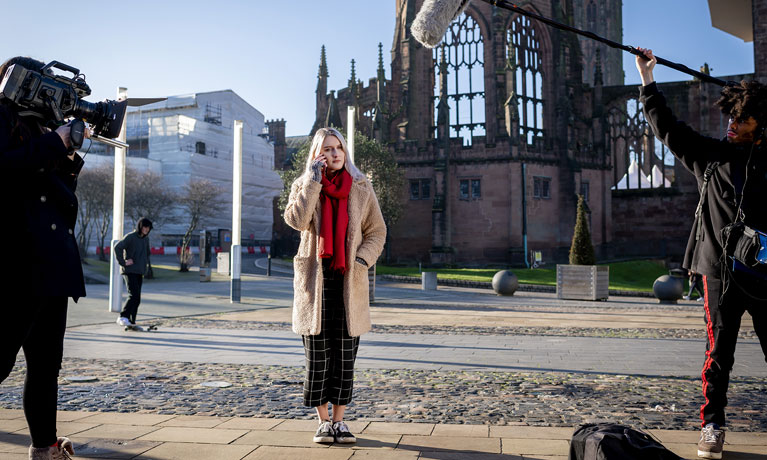
How you'll learn
The course is delivered though project-based ‘hands-on’ learning, with a great emphasis on location work, live projects and practice activities, all with ongoing feedback. Past students have worked on projects as diverse as assisting on film sets or shooting promotional videos for production companies. Your personal tutor will review and discuss your progress with you and provide advice throughout the course.
Our current excellent industry links typically enable us to host an exciting programme of guest speakers covering topics such as film production, scriptwriting, distribution and curation of moving images (subject to availability)2.
The course normally lasts three years when studied full-time and four to six years part-time, though full-time students have the option to extend the course by taking a sandwich year between the second and third years on placement or study abroad2.
Teaching contact hours
We understand that everyone learns differently, so each of our courses will consist of structured teaching sessions, which can include:
- On campus lectures, seminars and workshops
- Group work
- Self-directed learning
- Work placement opportunities2
The number of full-time contact hours may vary from semester to semester, however, on average, it is likely to be around 12 contact hours per week in the first and second year dropping to around 10-12 contact hours per week in the third and final year as you become a more independent learner.
Additionally, you will be expected to undertake significant self-directed study of approximately 15 hours each week, depending on the demands of individual modules.
Part of university life is undertaking self-directed learning. During a typical week you will have time that allows you to work independently to apply the skills and knowledge you have learnt in taught or facilitated sessions to your projects or assignment briefs. This self-directed learning allows you to use your research skills, consolidate your knowledge or undertake collaborative group work.
As an innovative and enterprising institution, the University may seek to utilise emerging technologies within the student experience. For all courses (whether on-campus, blended, or distance learning), the University may deliver certain contact hours and assessments via online technologies and methods.
Since COVID-19, we have delivered our courses in a variety of forms, in line with public authority guidance, decisions, or orders and we will continue to adapt our delivery as appropriate. Whether on campus or online, our key priority is staff and student safety.
Assessment
This course will be assessed using a variety of methods which will vary depending upon the module. Assessment methods include:
- Practical or project work
- Coursework
- Tests
- Essays
- Presentations/posters
The Coventry University Group assessment strategy ensures that our courses are fairly assessed and allows us to monitor student progression towards achieving the intended learning outcomes.
International experience opportunities
Our course is designed to reflect the increasingly international context of media production; this is reflected strongly in the course curriculum through international trips2 which can provide the opportunity for insight into other cultures and societies throughout the world.
We strongly encourage you to broaden your theoretical, cultural and practical references, providing opportunities to broaden your horizons by living, studying or working abroad on a sandwich year.
You may have opportunities to take part in international trips where you will have the chance to develop your knowledge and skills through the production of individual and group media projects. Reviewed annually, previous field trips have included: Cyprus, Hangzhou, Kenya, Los Angeles, New York, Norway, Paris, Prague, Sierra Leone and Tenerife. On all trips, you are encouraged to engage in production projects, which could involve assisting on a local film production or making your own films using local crew2.
Entry requirements
Typical offer for 2024/25 entry.
Fees and funding
2024/25 tuition fees.
| Student | Full-time | Part-time |
|---|---|---|
| UK, Ireland*, Channel Islands or Isle of Man | £9,250 per year | Not available |
| EU | £9,250 per year with EU Support Bursary** £19,850 per year without EU Support Bursary** |
Not available |
| International | £19,850 per year | Not available |
If you choose to do a work placement2, you should consider travel and living costs to cover this. There is also a tuition fee3 of £1,250 that will cover your academic support throughout your placement year.
For advice and guidance on tuition fees and student loans visit our Undergraduate Finance page and see The University’s Tuition Fee and Refund Terms and Conditions.
We offer a range of International scholarships to students all over the world. For more information, visit our International Scholarships page.
Tuition fees cover the cost of your teaching, assessments, facilities and support services. There may be additional costs not covered by this fee such as accommodation and living costs, recommended reading books, stationery, printing and re-assessments should you need them. Find out what's included in your tuition costs.
The following are additional costs not included in the tuition fees:
- Any optional overseas field trips or visits: £400+ per trip.
- Any costs associated with securing, attending or completing a placement (whether in the UK or abroad).
*Irish student fees
The rights of Irish residents to study in the UK are preserved under the Common Travel Area arrangement. If you are an Irish student and meet the residency criteria, you can study in England, pay the same level of tuition fees as English students and utilise the Tuition Fee Loan.
**EU Support Bursary
Following the UK's exit from the European Union, we are offering financial support to all eligible EU students who wish to study an undergraduate or a postgraduate degree with us full-time. This bursary will be used to offset the cost of your tuition fees to bring them in line with that of UK students. Students studying a degree with a foundation year with us are not eligible for the bursary.
Facilities
We have a well-stocked Media Loan Shop so you can borrow an extensive range of specialist, professional equipment, including 4K and HD video cameras, DSLR cameras, tripods, audio equipment and lighting.
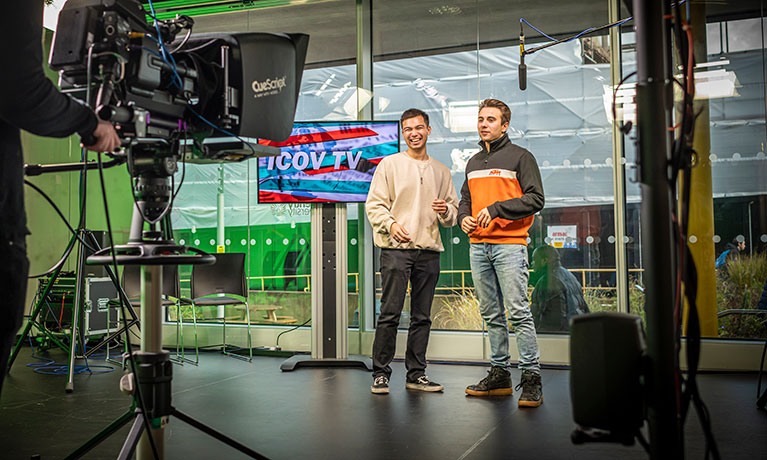
Television Studio
You’ll have access to our on-site television studio The Tank, offering specialist equipment such as large cameras, mixing facilities and fibre-optic wiring throughout.
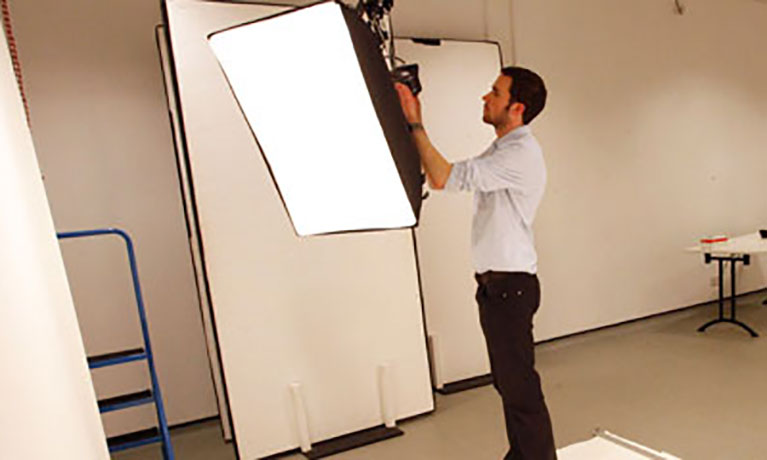
Photography Suite
This specialist facility is available to media students to take and process photos in a professional environment. There is also support for printing, high-end scanning and film processing.
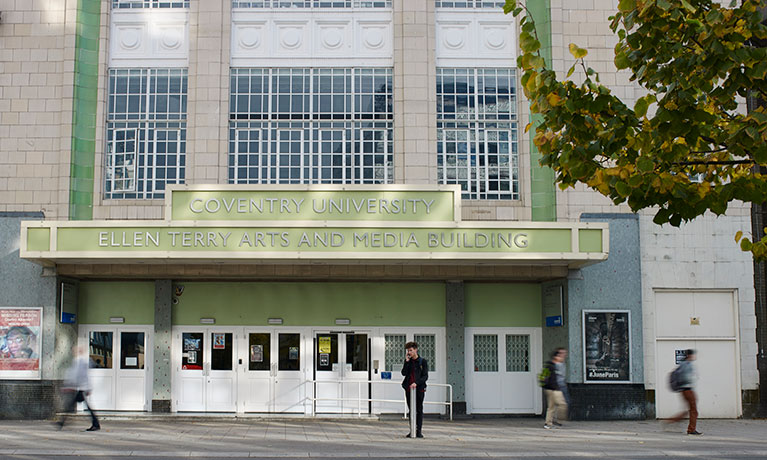
Media Loan Shop
Our media loan shop provides you with access to the equipment and support you need to excel in your studies – from basic audio recorders to professional cameras and expert advice from our technicians.
Careers and opportunities
On successful completion, you will have knowledge of:
- The roles of communication, media and cultural systems within their political, social, economic and technological contexts.
- The modes of representation and systems of learning within the contemporary social world and the ways these are shaped by issues of gender, race, class, ethnicity, disability, sexuality and nationality.
- The historical and global contexts of media, communication and cultural systems and processes.
You will be equipped with the skills to:
- Apply the various processes and practices that combine towards the production and consumption of media, communication and cultural texts.
- Undertake a variety of forms of research appropriate to different forms of study and analysis and be able critically to reflect on the appropriateness of each form of research.
- Critically reflect on the chosen processes of production.
- Critically interrogate through appropriate theoretical and conceptual material the various processes of production of media and cultural texts.
The ever-changing world of the creative industries demands multi-skilled media professionals, who are familiar with a range of media platforms, full of ideas and imagination, with strong ethics and levels of professionalism; these same graduate attributes our course seeks to nurture.
Where our graduates work
The school has a very long and impressive history of graduates who establish themselves in extremely high-profile media and cultural employment, examples of which include: executive producer for many highly prestigious Hollywood films, executive producer for SYCO, director for BBC documentaries, DJs for national radio stations such as BBC Radio 6 and Virgin Radio, planners and creatives for a number prestigious London-based advertising agencies.
Further study
You can choose to continue your studies at Coventry University with:
You may be entitled to an alumni discount on your fees if you decide to extend your time with us by progressing from undergraduate to postgraduate study.
Graduate Immigration Route visa
Based on current information from the UK Government, international students whose study extends beyond summer 2021 may be eligible for a visa under the UK Government’s Graduate Immigration Route, which will enable students to stay and work, or look for work, in the UK at any skill level for up to two (2) years. Check the most up to date guidance available to check your eligibility and any updates from the UK Government before making an application or enrolment decision.
How to apply
You may also like
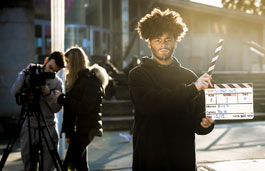
Film Production BA (Hons)
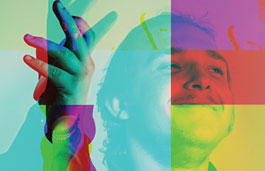
Digital Media BA (Hons)
